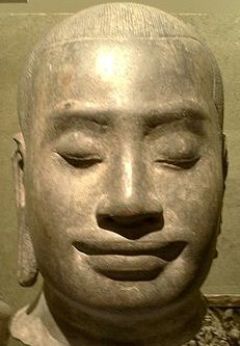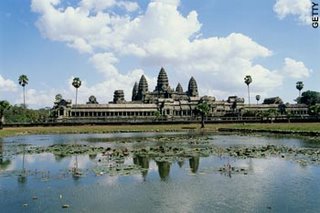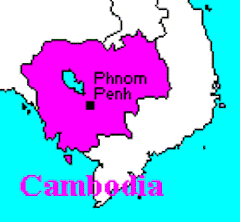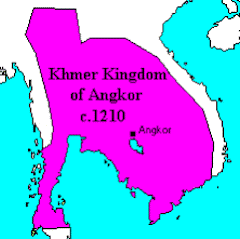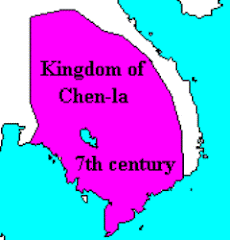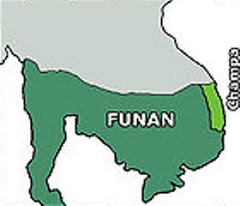 Judges and contestants gather in the boardroom to decide who will be"going home" at the end of each episode of Youth Leadership Challenge. More picture slideshow...
Judges and contestants gather in the boardroom to decide who will be"going home" at the end of each episode of Youth Leadership Challenge. More picture slideshow...PHNOM PENH, Cambodia—With her button-down blouse, plastic-frame glasses, and impeccable résumé—youth delegate to the United Nations, research assistant on rural economic development—Heng Socheata seems like an unlikely maverick.
"I didn't tell my friends to watch the show," the 21-year-old accounting student said. "If I won, it'd be OK. But if I failed, it'd be kind of embarrassing."
Socheata is among the young stars of a new reality TV show that quietly subverted the political orthodoxy of Cambodia's heavily censored broadcast networks—seven public and private stations all under the thumb of the ruling party. Part Apprentice spinoff and part civics class, the
Youth Leadership Challenge replaces Donald Trump's aspiring moguls with 16 citizen-heroes who race around the capital collecting signatures for a neighborhood clean-up petition, producing a social-advocacy video, and soliciting donations for an orphanage.
In the show's inaugural season, which concluded last week, contestants were quick to adopt the true spirit of the genre: Reduced to tears one moment, they gave on-air confessionals the next. There have, for sure, been a few cross-cultural adjustments. Trump's trademark "You're fired!" was deemed too harsh for the Cambodians, two of whom were instead told to "Go home" each week. The prize for the last do-gooder standing was a trip to America, still the promised land for Cambodia's young and ambitious.
The program was the brainchild of the
International Republican Institute, a
USAID-funded and U.S. Republican Party-linked group that collaborated with the
Youth Council of Cambodia to produce the show. IRI, along with its sister organization, the
National Democratic Institute, was founded during the Reagan administration to aid U.S. efforts to promote—in some critics' parlance, "export"—democracy abroad, with offices now in Iraq, Haiti, and more than 40 other geo-strategic hot spots. Both groups still recall the spirit of the Cold War years, focusing on political-party development, civic mobilization, and election monitoring to promote "the nuts and bolts of democracy," according to Jerome Cheung, NDI's resident country director in Cambodia.
Of course, that the United States once bombed Cambodia in the name of such ideals isn't lost on this new wave of political missionaries. But Cambodia, unlike Vietnam, was forced to recover from Year Zero and the mass murder of nearly 2 million citizens. By 1992, when the U.N. occupation began, many Cambodians were ready to let in the phalanx of Western donors and aid groups at its door and begin the country's fitful transition to democracy.
Under the guise of its competitive theatrics, the Youth Leadership Challenge makes an indirect but unmistakable challenge to a government that continues to censor broadcasts of unfavorable news items, miniskirted entertainers, and portions of congressional hearings that seem threatening to the ruling party. In one high-profile crackdown, the IRI-backed
Cambodian Center for Human Rights hosted a public forum that led to the arrest of CCHR director Kem Sokha and four colleagues on charges of defaming Prime Minister Hun Sen in late 2005, provoking an international outcry.
Barely a year later, the Youth Leadership Challenge featured a free-flowing debate about the national law prohibiting adultery, a bill mandating military conscription, and sex education in public schools. Between the frenzied yelps of the timekeeper, the contestants expounded, rebutted, and, occasionally, grabbed the microphone away from one another. "I don't know how we're supposed to argue against what we believe in," Socheata admitted in a fit of offstage nerves, moments before making the case for why women shouldn't be allowed to hold high political office.
According to local media trainer Moeun Chhean Nariddh, the program's unscripted antics have helped usher in "one of the most serious and political programs in Cambodia. … All networks are either censored or self-censored, as everything is controlled by or affiliated with the ruling party."
Local observers are still wondering how the kids have gotten away with it. For years, IRI had been commonly perceived as supporting the opposition
Sam Rainsy Party—an allegation bolstered in 1997 when an IRI staffer was wounded in a grenade attack on an opposition rally he was attending, as well as by Republican Sen. Mitch McConnell's long-standing calls for "regime change" in Cambodia. (Cynthia Bunton, IRI's Asia director, maintains that the organization has always been nonpartisan.)
Over the years, however, the ruling
Cambodian People's Party has only continued to consolidate power, bolstered by Hun Sen's strong-arm tactics and an expanding grass-roots base. Many believe the SRP has lost its critical bark since its eponymous leader's return from self-imposed exile in France last year. The CPP accepted IRI's offer of political training for the first time in its history last fall, and IRI has been able to explore alternative means of cultivating a more open society in Cambodia.
"You have a hole in the boat, and water is coming through that hole," explained Thun Saray, director of Adhoc, a leading rights organization. "You have to plug the hole without making the boat turn over."
Certainly, the reality show's contestants hardly come off as radicals; they're the good kids, overachievers chosen from nearly 200 candidates. But the program has capitalized on their youth and ambition by leaning on another infamous U.S. export: American cultural mystique.
In a country where 70 percent of the population is under 30, Cambodians have an overwhelmingly positive opinion of the United States, as IRI's own 2004 poll confirmed. Bunton emphasized that the show's organizers "tried to tweak [the program] to be relevant to Cambodians." But the competition's big prize is hardly an afterthought. "That's why everyone wanted to be on the show—to go to the U.S.," said contestant Sorn Sarath, 24, who had already posted a photo of the U.S. ambassador on the wall of his volunteer-staffed NGO, the Student Movement for Democracy.
The first Youth Leadership Challenge winner, Hing Soksan, 26, is another SMD staffer who introduced himself in an interview as an orphan and a future NGO officer. Unable to find a suitable job in Cambodia, Soksan hopes to use his trip to the United States "to learn from American leaders … and make Cambodia have more freedom than it has now."At the same time, the contestants are hardly guileless consumers of everything Amerik. For them, the show's most outrageous task wasn't canvassing pool halls or handing out condoms on Valentine's Day, it was being criticized on camera. In a culture where "losing face" remains cause for shame, the judges dissected the contestants' leadership flaws—then had them turn on one another.
"In Cambodian culture, we don't say these things directly. We have to save face," said Socheata. "I've learned how to go after people directly. You have to be very good at seeing the weak points of other people, and you have to go back after them."
For one of the judges, that unrestrained public criticism lies at the heart of the show's edifying mission. "It's part of American culture—the competition of ideas," said Theary Seng, the Cambodian-American director of the
Center for Social Development. "In a market economy, everything goes through a refining process, and the best idea or product will surface."
Trump couldn't have said it better himself.
.JPG) Students' activities were happy with reading and playing puzzle in new library opened by Young Generation for Development
Students' activities were happy with reading and playing puzzle in new library opened by Young Generation for Development
.jpg) Mr. Hing Soksan was interviewed in VOA studio during the trip to USA
Mr. Hing Soksan was interviewed in VOA studio during the trip to USA
.jpg)
.jpg)
.jpg)
.jpg)
.jpg)
.jpg)

.jpg)
.jpg)
.jpg)
.jpg)
.jpg)
.jpg)
.jpg)
.jpg)
.jpg)
.jpg)
.jpg)
.jpg)
.jpg)
.jpg)
.jpg)
.JPG)

 Judges and contestants gather in the boardroom to decide who will be"going home" at the end of each episode of Youth Leadership Challenge.
Judges and contestants gather in the boardroom to decide who will be"going home" at the end of each episode of Youth Leadership Challenge. .JPG)

